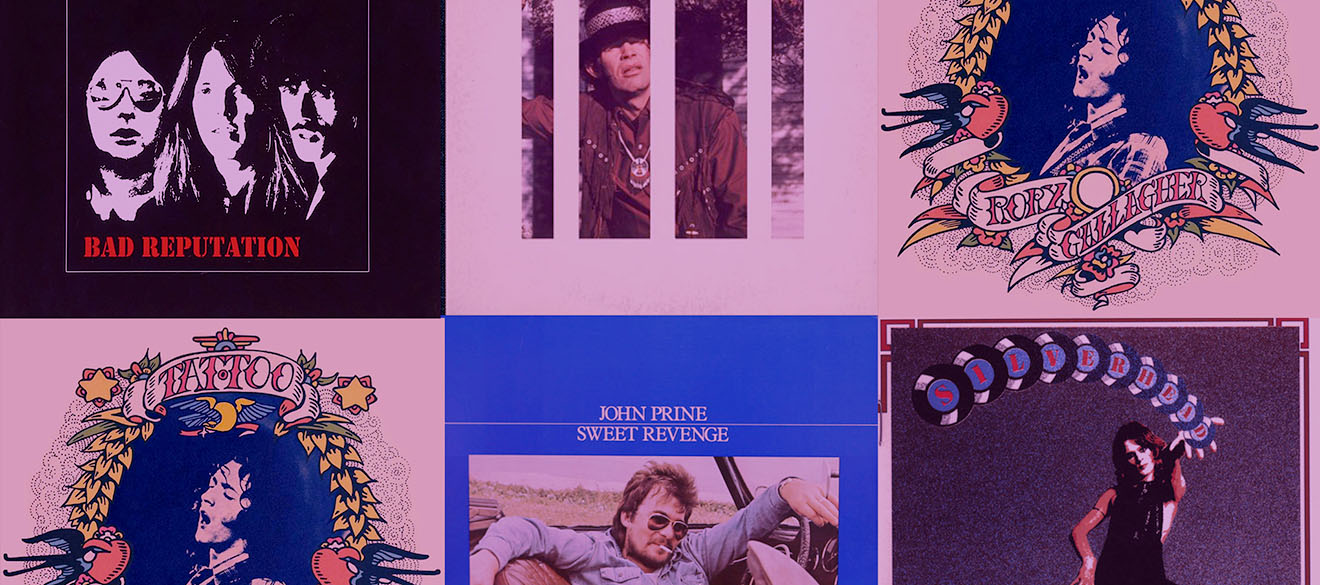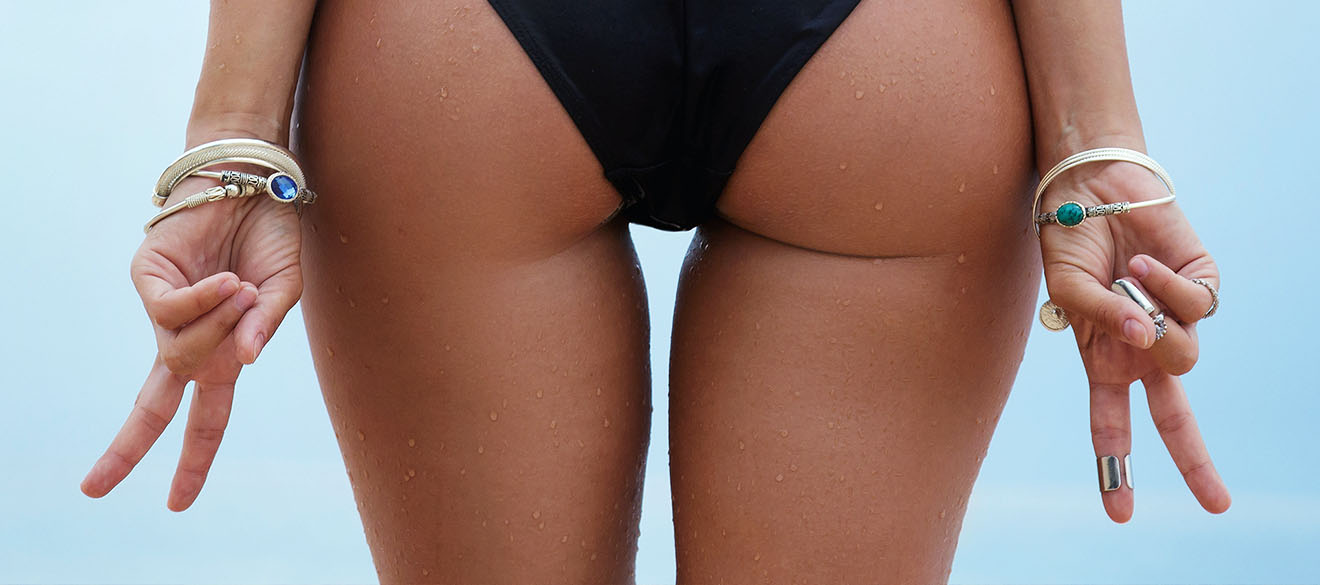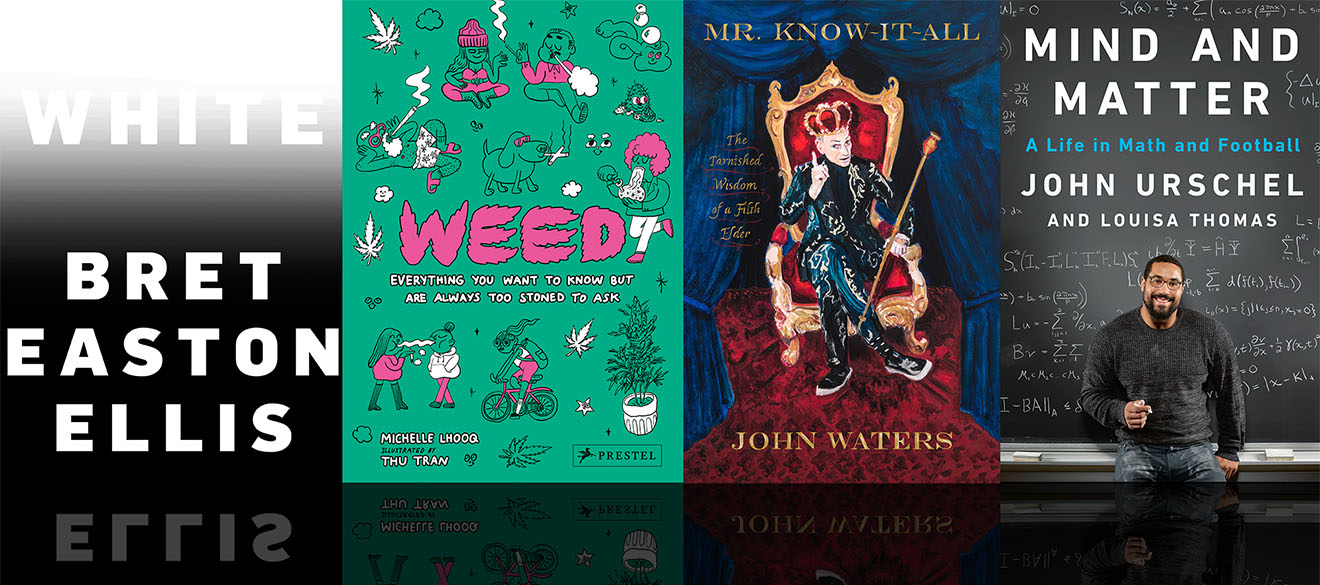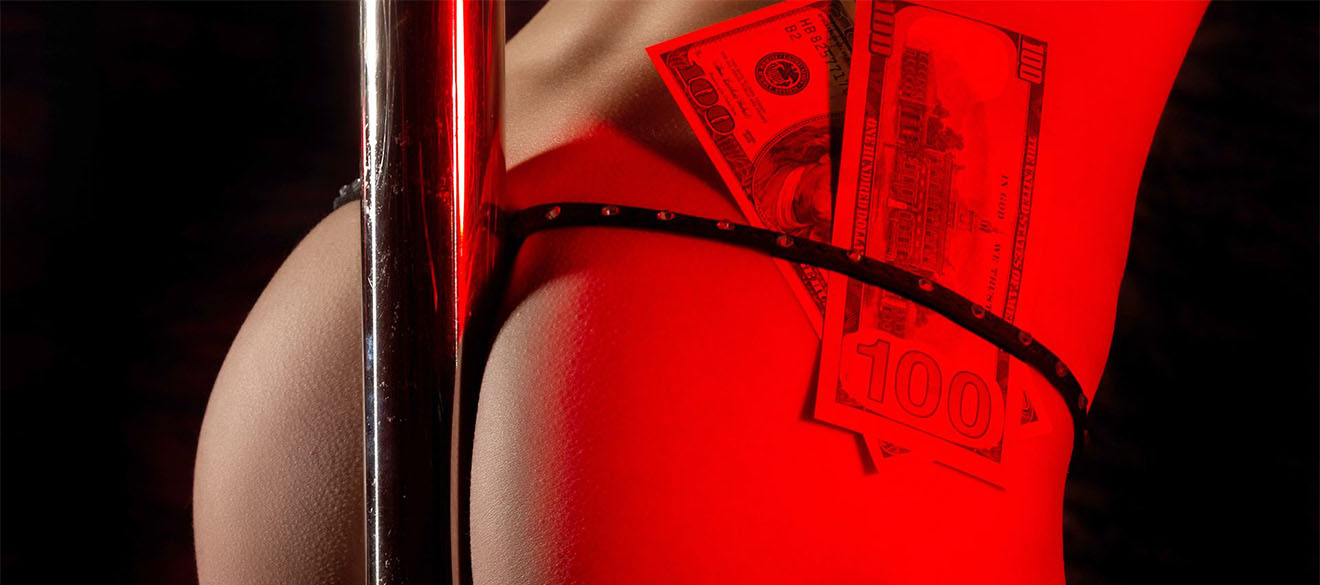I was once told by a woman who calls herself a witch that I was a prostitute in a past life — or, rather, in her own words: a woman of ill repute. I’m not normally one to put stock in this kind of thing, but when she told me that, I didn’t have to engage in a lot of mental gymnastics for it to make a strange sort of sense.
The woman’s words came back to me when I found myself compelled to investigate the unsolved murders of sex workers whose remains were discovered lined up along a lonely beach-town road. There were times it did feel like a past life had hijacked my brain, convincing me to fall in with an internet crowd trying to solve the Long Island Serial Killer case.
These sleuths are stay-at-home moms, taxi drivers, psychics, people on bed rest, bankers, and even a former Las Vegas haunted-house employee — dedicated amateurs who’ve spent years scouring the internet, looking for anything the authorities might have missed, anything that could lead to the capture of a canny killer believed to have been operating in the shadows for 20 years.
Early on, I told myself I wouldn’t become a desktop detective. I rationalized the time and energy I began directing toward this mystery by classifying my interest as basic human curiosity —
I just wanted to know who these people, these keyboard Sherlocks, were. It seemed worth looking into, journalistically — a varied group of Americans attaching themselves to a notorious serial-murder case.
And yet here I am, one cold January day, walking the shoulder of Ocean Parkway on a desolate barrier island off Long Island’s southern shore. I’m following a video map I found on YouTube, one that traces the steps of the killer, who used this stretch of road as a secret graveyard. The map shows where the perpetrator is believed to have carried his victims’ bodies, wrapped in burlap sacks, from a car and dumped them in bramble, mere feet from the road’s edge.
No one knew a killer had been depositing bodies and body parts in the South Shore region of Long Island when Shannan Gilbert went missing in the predawn gloom of May 1, 2010.

Shannan, a 24-year-old escort from Jersey City, New Jersey, had advertised her services on Craigslist. She’d arrived at her client Joseph Brewer’s house in Oak Beach, a small, gated community off Ocean Parkway. But something inside Brewer’s house freaked her out, and she called 911. Although police have not released the 911 tape, her mother, Mari Gilbert, heard portions. She says her daughter was screaming, “They’re trying to kill me!” They could refer to Brewer and Shannan’s driver, Michael Pak — but Suffolk County police have cleared both men. Investigators claim she sounded psychotic — possibly a reaction to drugs. She bolted from the house, away from the two men, banged on neighbors’ doors, and vanished.
After weeks of nothing, the search for Shannan slowed down. Her family accused the police of not trying hard enough to find her because she was.… just a hooker.
Then, on December 11, 2010, police officer John Mallia and his cadaver dog, Blue, were training on Ocean Parkway, near Gilgo Beach, minutes from where Shannan was last seen, when Blue found a woman’s skeletal remains. They turned out to be the remains of Melissa Barthelemy, another escort who advertised on Craigslist and had been missing for a year.
Mallia and his dog would later find the bodies of three more young women placed only hundreds of feet apart on Gilgo Beach. Each of them had been strangled and started to decompose at another location — a pattern that has been linked to serial killers who engage in necrophilia. Like Barthelemy, these women were found inside burlap sacks. The victims were Amber Lynn Costello, 27, Maureen Brainard-Barnes, 25, and Megan Waterman, 22.
Using a search party of cadaver dogs, divers, and helicopters, Suffolk County PD would go on to find the corpses or body parts of six more people scattered along Ocean Parkway. Some of the remains discovered at Gilgo Beach turned out to be genetic matches for body parts found 20 years earlier elsewhere on Long Island.
A pair of hands and a skull matched a mutilated torso found in Manorville, 40 miles east. A skull matched a pair of legs that had washed ashore on Fire Island in 1996. There was an Asian male, still unidentified, found in women’s clothes. There was the corpse of an African-American toddler wrapped in a blanket whose DNA connected it to another corpse, the girl’s mother, found a mile away.
Currently, there are more unidentified victims than those police have identified. After the additional discoveries, investigators struggled to establish whether this was the work of one killer or possibly more. A single-killer theory was easier to support back when all the victims were a similar type: petite, white escorts.
Police eventually found Shannan Gilbert a year later, in nearby wetlands off the road, badly decomposed. Her death was ruled an accidental drowning — overexposure to the elements having weakened her until she collapsed.
Still convinced she’d been in a drug-induced episode, police suggested she ran through the marsh, disoriented. The Suffolk County PD does not include her as one of the victims of the serial killer — something Shannan’s family struggles with. On the one hand, they hope she wasn’t murdered. On the other, is it really just a coincidence that a fifth woman, also a sex worker who advertised online, was found dead in a swamp near Gilgo Beach?
When asked if police were taking this serial murder case seriously enough, former Suffolk County police commissioner Richard Dormer, who worked the case until he retired, made a point of saying he hung the photos of these young women in his office.
“They look like your neighbors,” Dormer stated. “Nobody deserves to have their life snuffed out. Police departments everywhere take murder very seriously. Doesn’t matter the occupation of the victim — if you were murdered, we’re obligated to represent that person.”
But Lorraine Ela, mother of Megan Waterman, says she’s convinced the cops have put her daughter’s case on the back burner. “This is too big a case for Suffolk County to handle,” Ela tells me, and notes that she rarely hears from police anymore. For a time, in 2015, when the FBI began assisting and Suffolk County got a new police commissioner, Ela was hopeful there’d be increased action on the case. But her phone has since stopped ringing.
This silence is one reason Ela and family members of other victims turned to case websites and desktop detectives for support, updates, and possible leads, however unofficial.
THE first place I find extensive, user-gathered information regarding the case is the YouTube channel of Gray Hughes. He made the video-map I used to navigate Ocean Parkway. When Hughes reads about a crime scene, he logs onto Google Earth and drops a pin. He often then replicates the scene and its physical setting with a program like 3D Studio Max and posts the video for user analysis.
When it comes to the Long Island Serial Killer case, Hughes is trying to provide a resource that can help people visualize the crime scene. He hopes it might trigger a memory in someone who has been through the area, perhaps a beachgoer, someone who might have seen something suspicious.
“I feel like it gives the viewer a better feel for the location,” Hughes tells me.
It does exactly that. His Google Earth video’s point-of-view is one of a person standing on the shoulder of Ocean Parkway — the same view the killer might have had after pulling over with a body in the car. Hughes’ video pans slowly left to right, scanning the barren landscape. During winter, with the beaches deserted, Ocean Parkway is so isolated it’s not hard to believe a killer could dispose of a body, or bodies, even in broad daylight.
Paranoia comes naturally to people in the online amateur-detective world. It’s what happens when you immerse yourself in dark details, labyrinthine theories, and rosters of potential murder suspects in unsolved serial murder cases — cases where the killer might still be at large, and perhaps reading your latest website post.
Fear has both fostered and destroyed relationships in this digital community. It’s a subculture of distrust, anxiety, and information. It’s a realm rife with clues and red herrings, do-gooders and trolls. It’s hard to get people’s real names.
“Zero,” for example, was suspicious of me from the start.
“I’m a little curious about you,” he tells me online. “Your questions are so specific. I’m wondering if there is more to why you are looking into all this.” I tell him he can google me. Or check my Facebook. I assure him I’m a real person.
Zero responds, “I say this kind of thing to everyone.”
He has his reasons for wondering if I am legit. After he began posting about the Long Island Serial Killer, aka LISK, in 2013, he was targeted by trolls. His website, liskdotcom.wordpress.com (still online but rendered inactive in 2014), is both a museum of factual evidence and an archive of paranoia-tinged comments.
All the case theories are here, from a police cover-up to demon worshippers, from snuff films to the sex-and-death orgies of millionaires. Zero’s own emails arrive jammed with giant blocks of information. He helps me try to get a grip on this vast chaos of truth and fiction, evidence and fantasy. He’s preserved hundreds of emails between him and others (persons of interest, possible witnesses, fellow desktop detectives, victims’ families), as well as screenshots of almost any online mention of this enduring mystery.
Zero’s site was part of a second wave dedicated to the case, succeeding the now-defunct LongIslandSerialKiller.com, which went live in the days after the first bodies were found. That site got substantial traffic from amateur sleuths, family members of victims, and Long Island residents unsettled by the notion that a serial killer might still be out there, poised to dump another body.
But the site’s chat room also became a place of slander, wild rumors, and trolling. People accused fellow visitors of being the killer. Everyone I’ve spoken to about LongIslandSerialKiller.com believes the killer himself not only visited the website, but might have posted. Anxiety escalated. Certain commenters banded together out of fear the killer was stalking them — even if they lived in different states, hundreds of miles away.
The site’s founder, overwhelmed, eventually shut it down. But new websites popped up. One of these, Catching LISK, created by MysteryMom7, captured the founder’s growing paranoia. At one point, MysteryMom7 thought the killer had sent a drone to spy on her. She claimed it crashed in her backyard.
Two camps would come to frequent Zero’s own site. There were those working to unlock the mystery, and those pushing wild conspiracies. In the first camp was a woman named Linda. Bedridden after an accident, she became engrossed with the case’s complexities. Linda and Zero made it a goal to keep the conspiracy camp from spreading misinformation to the victims’ families. Zero spoke with Shannan’s mother, Mari, and offered to make sure certain people weren’t “in her ear.”
Understandably, Mari pursued any shred of possible hope, and cast a wide net in seeking help. She contacted people like Jerrie Dean, founder of Missing Persons of America. Dean has compiled an almost Bible-size list of missing people. Some entries date so far back, the victims were last seen on stagecoaches.
Dean told me the same thing she told Mari: She thinks something set Shannan off in the house, which led to a dissociative break. She believes Shannan’s death was accidental. However, she also believes former Suffolk County police chief James Burke was, in her words, “lazy,” and “didn’t care about [those young women].” (Reader, put a pin in Burke’s name.)
According to people posting on the internet, the Long Island Serial Killer is a clean-cut sociopath, a shoe freak with a nice car, a wife, and kids. He’s a South Shore local, religious, bisexual, well-spoken. He’s a doctor and periodic drunk. He’s a bald narcissist. He’s corporate and charming. He’s a fisherman with a truck. He’s a small-town cop who keeps corpses for sex. He’s a transient, blue-collar, 50-year-old white male. He’s a depraved sadomasochist who summers on the shore.
The internet has put forth various persons of interest. There’s Joseph Brewer, the john. There’s Michael Pak, Shannan’s driver the night she disappeared. There’s someone known as “The Drifter” — a man who claims to have partied with Brewer and even self-published a “fictionalized autobiography,” detailing the supposed drug-fueled prostitution parties at Brewer’s house.
Rooted deep in the online discussion is the notion of a possible police cover-up. This theory began with the fact that the killer used Melissa Barthelemy’s cell phone to call and taunt her teenage sister. The sister, Amanda, received several phone calls from a calm-sounding man telling her that Melissa was a whore and that he was “watching her rot.” Some desktop detectives believe the killer is somehow connected with law enforcement because during these disturbing calls, he’d hang up just before the call could be traced. When police were able to ping the phone’s general location, it turned out the killer had placed the calls from crowded places like Times Square or Madison Square Garden. Former police commissioner Richard Dormer dismisses this theory. He says anyone who’s seen some cop shows knows that tracing protocol.
But there’s also James Burke, onetime Suffolk County police chief. In 2015, Burke was arrested for beating up a young man who stole a canvas bag containing pornography and sex toys from Burke’s SUV. The beating happened while the thief was shackled at a county police station. Burke went on to cover up the assault, and eventually pleaded guilty to obstruction of justice and violating the man’s civil rights.
Burke’s past is fodder for conspiracy theorists who accuse him of mishandling the LISK case — and maybe even being the killer himself. Back when Burke was a sergeant, he was caught having sex with a drug dealer and prostitute. Even still, he rose to become police chief. Moreover, when Burke was a teen, he testified in court against his friends, whom he watched beat a 13-year-old Smithtown boy to death in the woods and stuff rocks into his mouth. They wonder about Burke’s account of the murder.
The theory that would take firmest hold on websites fingered Dr. Charles Peter Hackett. For years, Hackett was an Oak Beach resident: a middle-aged, overweight man with a prosthetic leg. A group of commenters worked hard to build a link between the doctor and the death of Shannan Gilbert. Hackett became the internet’s top person of interest after Mari said Hackett called her in the days after Shannan went missing. Hackett, Mari said, uttered something very strange, saying he ran a “home for wayward girls.” Though Hackett denied all this and claimed he never hosted Shannan, phone records confirm he did in fact call Mari.
A past trauma in Zero’s life might help account for his obsessive drive to illuminate this case. When he was 16, living in California, his best friend’s mom was killed by William Suff, aka the Riverside Prostitute Killer, convicted of murdering 12 women and suspected of many more slayings. When Suff’s photo appeared on television, Zero said his friend recognized him immediately.
Zero used to work at the Fright Dome in Las Vegas, a haunted house. His character had long scraggly hair, a ghoulish, blood-smeared face, and a Manson Family “X” on his forehead. It might be tempting to label Zero a morbid person, drawn to horror, and conclude that’s what led him to the LISK case. But from what I gleaned, Zero truly does want justice for the victims. He’s seen firsthand the destructive aftermath of a serial killer’s crimes.
When not entertaining every data speck, Zero also has had to deal with those trolls, and face some bizarre accusations, like “devil worship.” He had his name posted on websites and victim-memorial pages, with commenters suggesting he might be the killer himself. Some of this stuff began with a person I’ll call Money, who would also accuse her ex-husband of the murders.
Money claimed to be working with the FBI. Zero didn’t think she was a real person at first — just a troll with an alias. But it turned out she used her real name, worked at a bank, and Zero called her once. What really pissed him off was how normal she sounded. He says she believed she was sincerely helping the case.
Zero tells me Money and MysteryMom7 eventually joined forces.
“I contacted Long Island Homicide once, because they insisted I was endangering them,” he says. Money’s case theories are twisty and kooky, connecting everyone from James Burke to Zero to Hackett to the actor Michael Fassbender.
Money commented extensively on Zero’s site and Facebook memorial pages. She highlighted a group of men known as the Carney Construction Crew, or CCC, whom she alleged kill women for sport. She claimed her ex-husband and Hackett were CCC members. At first, Zero and others dismissed this stuff, like they’d rejected her Satanism theories. But then Zero and MysteryMom7 began receiving vague, spooky threats on their websites.
Zero shows me some visitor comments, the first by “Teps.”
Teps: Disregard everything said about the CCC. All falsification and wishful thinking. Go about your regular business and leave the CCC out of this.
Lightweight: CCC got no beef with you. Why you dragging CCC through the mud?
452inLondon: Carney Construction Crew after you? Do not take any chances. Shut down this website…. Take it to the pavement where it is more private.
To me, the comments read like the words of cartoon villains. They could have been typed by anybody. Zero, though, eventually came to think there might be something to the CCC. And he tells me to visit the site Websleuths for more.
 Linda Cardellini and Christina Applegate in Netflix’s “Dead to Me”
Linda Cardellini and Christina Applegate in Netflix’s “Dead to Me”

















